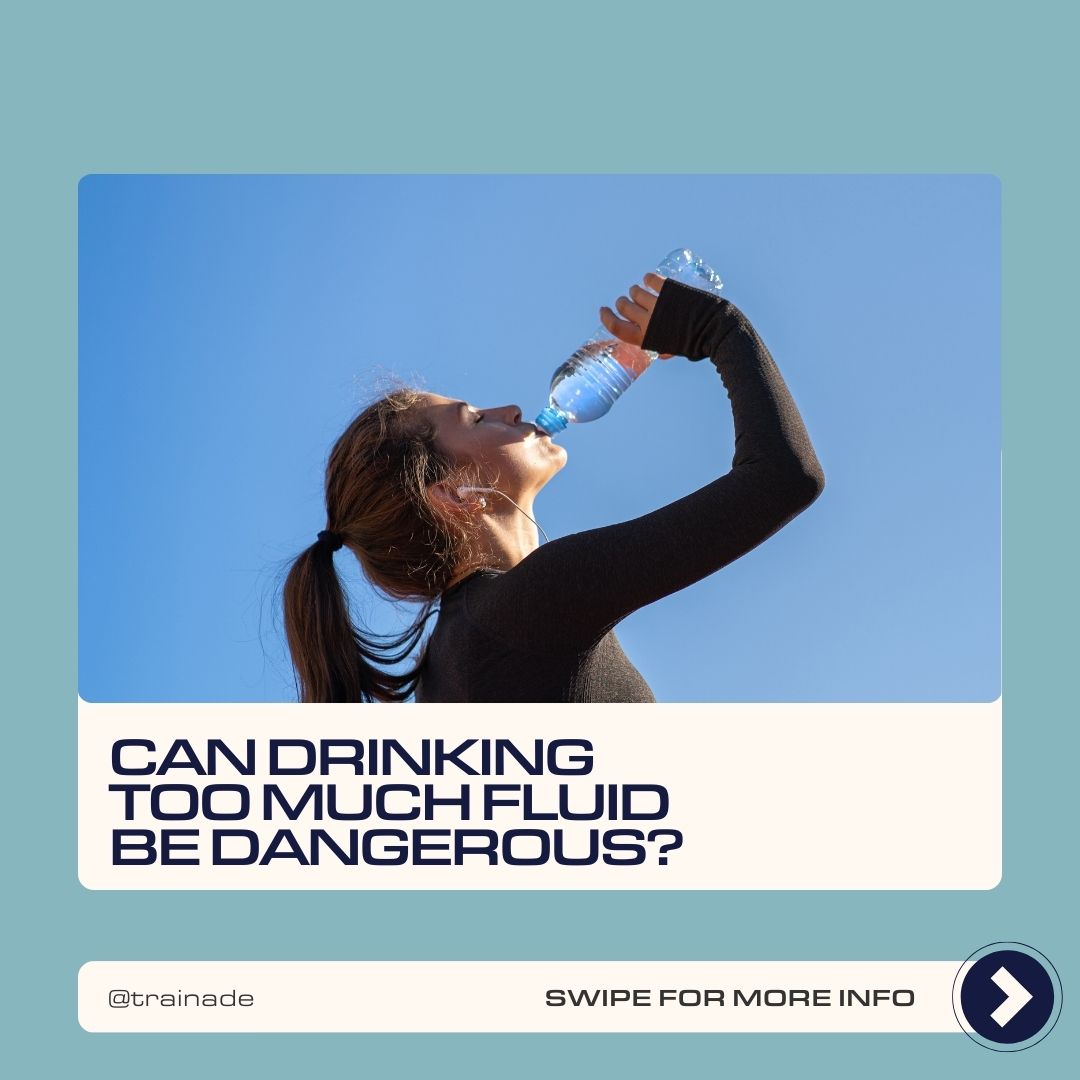Adequate hydration is a key pillar in both sports nutrition as well as general health. Without adequate hydration, we can feel lethargic, recover slower, and perform at a lower level then if we hydrated correctly.
But is it possible to over hydrate, and can this be dangerous?
What does drinking too much look like?
To appropriately discuss if we can over hydrate, we should discuss it in terms of minor over hydration and major over hydration.
Although the answer to if we can drink too much in each situation is yes, each type of over hydration will have unique issues attached to them.
Minor Over Hydration
Minor over hydration means having large quantities of water during very short periods of time. By this, we don’t mean excessive amounts, but rather amounts larger than our body is able to absorb and utilise.
If we drink too much water too quickly, our body will be unable to absorb it and therefore will dump the excess water straight to our bladder. In addition to this, chugging large amounts of water can cause feelings of discomfort in the stomach. This means that we have essentially wasted water that could have been absorbed if we consumed it at a slower rate.
In order to avoid this, we should drink water slowly throughout the day. We can only absorb 250ml every 15 minutes and therefore chugging large amounts may be counterproductive to your hydration goals.
Major over hydration (Water Intoxication)
Major over hydration, more accurately called water intoxication, is when water consumption is so high that your body is no longer able to regulate its electrolyte balance. This leads to dangerously low amounts of sodium in the blood which can cause mild to life threatening problems.
It should be noted however, that water intoxication is not likely to happen during periods of rest, but instead the risk is increased when in long bouts of exercise such as marathon running. This is because the increased rate of sweat leads to greater depletion of sodium and other electrolytes. Therefore, when high amounts of water is consumed, there is a greater chance that the excess water will overdilute that sodium content in the blood, leading to water intoxication.
How to prevent over hydration
It’s important to stress that the likelihood of major ove rhydration is significantly lower than the risk of dehydration. Therefore, the risk of over hydration should never lead to a reduction in normal total water intake.
The main way to prevent over hydration is to drink water slowly throughout the day. This should be the same amount of water that you usually consume within a day, just spread throughout the day instead of in larger quantities in short time frames.
In terms of water intoxication, electrolyte supplementation may be beneficial in ensuring that you maintain your levels of electrolytes in the blood stream. In addition to this, speaking to a sports dietitian and planning your race day nutrition through them is a great way to make sure that you are not only avoiding over hydration, but also optimising your race day nutrition and hydration as a whole.

